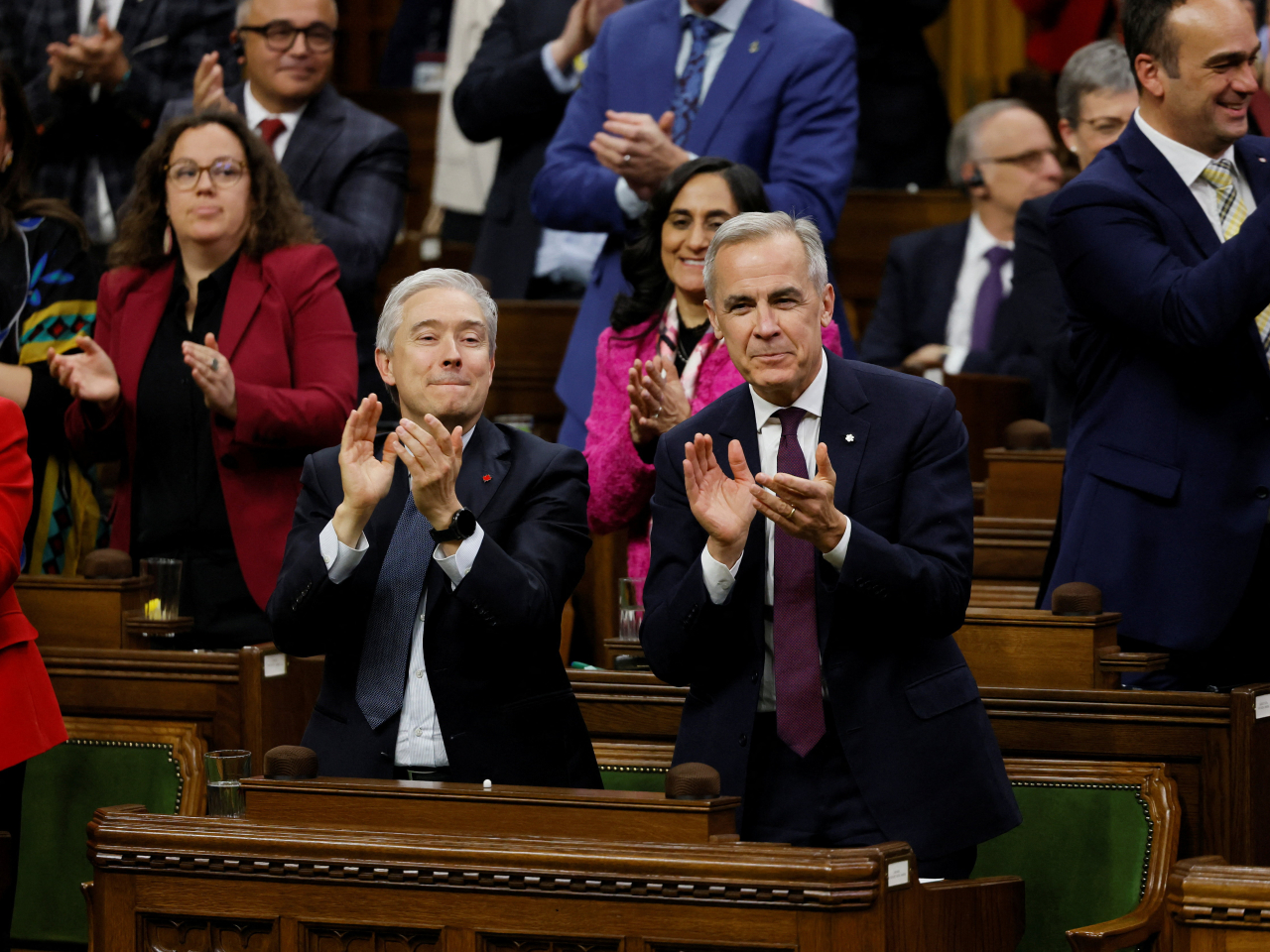Canada's government survived a confidence vote as parliament narrowly passed a budget that Prime Minister Mark Carney said would strengthen an economy threatened by US tariffs.
The minority Liberal government faced collapse over the cliffhanger budget vote on Monday, but a small group of opposition lawmakers – weary of triggering an election – allowed the fiscal plan to pass.
"It's time to work together to deliver on this plan – to protect our communities, empower Canadians with new opportunities, and build Canada strong," Carney said on X after parliament approved his budget with 170 votes for and 168 against.
He has described the budget as a "generational" opportunity to invest in Canada's economic future, bolstering self-reliance and reducing dependence on trade with US President Donald Trump's administration.
Carney was elected to a full term in April to stare down Trump's protectionist tariffs, but his Liberal Party fell just short of a majority.
To pass the budget, the Liberals required support from two opposition lawmakers – or get abstentions.
One opposition member, the lone Green Party lawmaker Elizabeth May, voted with the government, saying she was brought on board after Carney pledged in parliament earlier on Monday that Canada would meet its commitments under the Paris Climate Accords.
"Greens will hold the government to every word of that statement," she said, referring to Carney's promise.
Opposition leader Pierre Poilievre had panned Carney's deficit-expanding proposals, insisting that his entire Conservative caucus opposed what he called a "credit card budget".
But two Conservatives lawmakers abstained in a major boost for Carney.
The left-wing New Democratic Party (NDP) was also critical of the spending plan, saying it failed to address unemployment, housing shortages and the rising costs pinching Canadian families.
But the party performed dismally in April's election, has no permanent leader, and is in financial debt – factors that left members uneasy about forcing Canadians back to the polls.
In a statement issued after the vote, the NDP interim leader Don Davies explained why two of the party's members abstained, pushing the budget towards passage.
It was "clear that Canadians do not want an election right now," he said. "The consequence of defeating this budget would not be to improve it or to help Canadians.
It would be to plunge the country into an election only months after the last one and while we still face an existential threat from the Trump administration," Davies said, explaining the party decided to "put the interests of our country first." (AFP)





